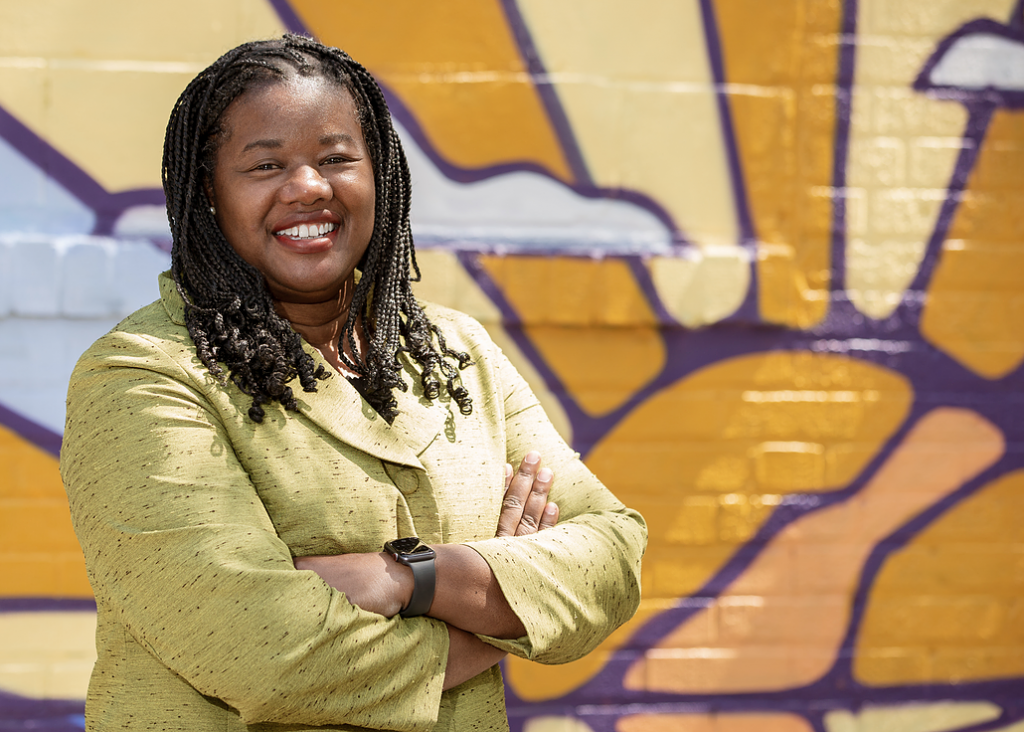By: Kim Council, Candidate for Brooklyn Borough President
A little over a year ago, I lost my father to COVID.
He was taken to the nearest hospital in Brooklyn by ambulance. I'm sad to say I can't help but wonder if he'd still be alive today had I been able to get him admitted to a hospital in Manhattan that was fully resourced.
Over the past 20 years, more than 1 in 4 of Brooklyn's hospitals shut down, with another closure on the horizon.
Last week, I stood with health advocates in Crown Heights to protest the clousre of Kingsbrook Jewish Medical Center - one of the last standing hospitals that serves areas of Central Brooklyn, many of which were some of the hardest-hit by COVID-19.
It's no secret these closures happen mainly in communities of color where there are already too few small practices to handle preventative health needs. And, many of the existing practices don't accept Medicaid or Medicare, creating 'healthcare deserts.'
This has created a dangerous situation where there's inadequate access to preventative care, let alone a regular doctor; overcrowding and understaffing because fewer hospitals must serve more patients; and distrust because patients are treated like a commodity that needs to be turned over quickly to help the bottom line.
Your zip code should not dictate the quality of healthcare.My community, and too many others across Brooklyn, have the highest rates of health issues with nowhere to go for treatment.
Several years ago when Saint Mary's hospital began reducing services before ultimately shutting down, my community was suffering from high rates of diabetes, heart disease, cancer, HIV and obesity.
To address this inequity, I worked with my physician and a physical therapist to convert the Berean Baptist Church parsonage into an affordable health clinic. We brought in culturally competent doctors who provided full medical services to 4,000 people annually with no copays.
For the first time in many people's lives there was an accessible location for their healthcare needs. Further, practices were staffed with social workers to serve the community so that doctors could focus on medical treatment.
This is a model I plan to scale as Brooklyn Borough President. I will track data to map where healthcare resources are lacking and pilot small community healthcare practices in low opportunity neighborhoods.
Under this plan, doctors willing to run clinics would qualify for support from Borough Hall by meeting two requirements: they must take a significant percentage of Medicaid patients; and they must opt-in to a new program I've proposed called the Community Health Improvement Corps.
The Community Health Improvement Corps is based on the Mental Health Service Corps, which staffed clinics with students studying to become social workers. Some of these future social workers would provide counseling to patients, while others would assist patients with accessing services that will improve patients' health and overall wellbeing. Additional partnerships with colleges, vocational, and training programs could help staff clinics with nurses, medical assistants, physician's assistants, doulas, and office administrators. And, coordination of shared staffing would allow clinics to benefit from the support of experts as needed.
As part of this proposal, I'd establish a Physician Advisory Committee to monitor results, collect feedback, recommend changes, share best practices, and release public progress reports. I believe this system could have a major impact on solving decades long health inequities. But, it cannot completely replace hospitals.
That's why I've called for a moratorium on hospital, pediatric ICU, and maternity ward closures. Too many closures have been blamed on staffing mandates, which is dangerous for staff and patients alike. We must advocate for minimum staffing levels at hospitals and nursing homes, coupled with increased funding for care. I'm also an advocate of increased funding for facilities that primarily serve low income patients and I oppose further cuts to Medicaid reimbursement rates.
In fact, as Borough President I will file a class-action lawsuit against insurance companies, including Medicaid and Medicare, who have been reimbursing phone appointments with a doctor at a lower rate than video appointments through the pandemic, which clearly discriminates against those who lack high speed internet access or tech savvy.
Healthcare is personal to me. Years ago, my sister's friend got very sick and needed a kidney transplant. None of her family members were compatible, she was going to die. I got tested to see if I was a match. Today, I have one less kidney, and she is alive and well. I'm honored to have the chance to save someone's life.
The inequity in our healthcare system is completely fixable. This is my mission. I can't give any more kidneys, but there's a lot that I can do. Healthy is a lifestyle that requires resources. I'm committed to making sure everyone gets the care they deserve.
You can learn more about my plans at kimcouncil4brooklyn.com.





